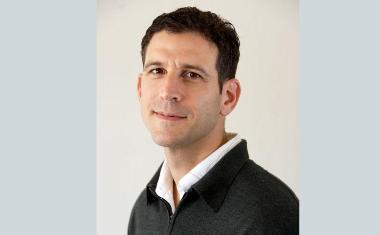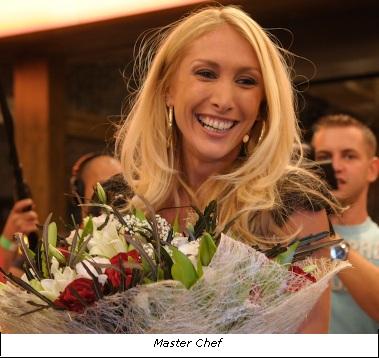Israeli TV Formats Find Success Abroad - Levi Shapiro

Last week, NBC announced the pick-up of Israeli TV game show "Still Standing". This is the latest in a string of Israeli TV formats recently acquired by US networks, including HBO, Showtime, Fox, CBS, ABC, TBS, CW and GSN. The discipline of creating "edgy mainstream" programming for fickle audiences on shoe-string budgets has helped Israeli formats become a hot commodity in Hollywood, spawning several pilots this development season: "Homeland" with Clare Danes (Showtime), "Traffic Light" (Fox) and "Naked Truth" (HBO). Many expect to see these US successes replicated across international markets at the MIP TV Conference next week in Cannes.
Israel would seem an unlikely source for great TV shows. The industry is young- Julia Roberts was born before the first Israeli broadcast. Moreover, the industry is small. With 1.5 million Hebrew-speaking TV households (Israel Audience Research Board), the audience is roughly the size of Sacramento. Finally, the industry is fragmented. Israel's largest broadcast network, Channel 2, actually has two concessionaires. The Sunday-Tuesday line-up is overseen by 'Reshet' while Wednesday-Saturday programming is controlled by a different company, 'Keshet'.
Ilan de Vries is VP of Content for Reshet. "Israeli film and TV Producers have to be innovative, creative and daring…and do it with a limited budget. What's changed is the rest of the world. America is now open to formats from all over the world, not just the UK".
Ran Telem, Head of Programming at Keshet, says "our main advantage is our disadvantage…having just 4 days a week of programming". The network has adopted a programming approach they call 'edgy mainstream'. "Being one or two steps ahead is a risky place. It means you will try and fail, because you are going places no one has gone before".
Karen Shahar, Head of Formats and Acquisitions at Keshet, cites the collaborative creative process with Producers as a key success factor. "Keshet executives are involved in the development process from Day 1. We prefer a close working relationship with the Producers and Creators. It is more hands-on than the American networks. You can find Avi Nir (the CEO) sitting in the editing room, approving soundtrack, etc."
"We do not have dedicated slots for a specific genre. If it's fresh, or a new way of storytelling, if it's relevant, it will get made and we will air it. The fact that we work with tight budgets also forces us to be more inherently creative."
Keshet worked closely with Gil Productions last year to adapt Shine Group's 'Master Chef' for local tastes. The story emphasized the cultural differences of the participants, a message that resonates in a nation where 36% of the population was born overseas. Israel is the only territory in the world to broadcast the final episode live. The season finale obtained a 54% share, the highest rated program of the season
.
John Pollak, Executive Vice President of Shine International, credits this success to collaboration. "We have worked hard to build strong partnerships with local broadcasters and production companies. The broadcasters are smarter, identifying what element of the format makes it so special".
Israeli audiences are technically savvy and appreciate cross-platform story-telling. The country has the world's highest density of technology start-ups, greatest proportion of scientists and engineers and most per capita R&D investment. It also has a much higher VOD penetration than the US or UK.
Leveraging this familiarity with technology, Keshet launched the show "Coming Soon-Love" in January, a web-based community of five celebrity women in search of Love. They communicate with one another via webcam in an intimate environment. Audiences embraced this approach, averaging a 25% rating in the late prime-time slot. Expect "Coming Soon- Love" to be a big-seller at MIP.

Another successful Israeli format that embraces non-traditional platforms is "uMan", from Dori Media. The show is like a virtual tamagochi. Eight contestants enter a "Lab" for 21 days. Their every move is controlled by viewers via web and cell phone. The format has been sold to 20 countries and can be seen online everyday in Turkish between 12:00-03:00 (GMT +2) at www.kontrolsende.tv
Historically, the most successful Israeli format in the international market was "The Safe", a game show produced in 2000 by Keshet and sold to over 70 countries. However, the catalyst for the recent boom in Israeli TV formats is Emmy Award winning drama "In Treatment", now in its third season on HBO. According to Producer, Haggai Levy, "we made this for Israeli television, so it had to be low cost". The show has been sold to over twenty countries by Dori Media but "except for Serbia, the lowest budget was Israel": http://www.youtube.com/watch?v=whufUqxyZjY
William Morris Endeavor (WME) was the first to recognize the appeal of Israeli TV shows for US audiences. They have sold "In Treatment" and nine other Israeli shows. Rick Rosen, Head of the TV Department at WME, thinks the trend will continue. "Good shows travel and the American market is looking for captivating concepts with commercial appeal. The low cost of the Israeli production is not really a factor. It is the quality of the writing". Rosen recently sold the program 'Hatufim', which is being adapted for Showtime as "Homeland". Attached to the American version is Executive Producer Howard Gordon (24), Hatufim Producer Gideon Raff and stars the actress Clare Danes. Rosen notes "Hatufim needed to be a much smaller show than the American version".
Another show coming to Fox this year is "Mixed Signals", an adaptation of the Israeli comedy series "Traffic Light" from Israel's top Producer, Elad Kuperman. This International Emmy Award winner tracks three longtime friends struggling to balance their committed relationships with the need for individual freedom. The show was acquired by CTC (Russia) and will likely be a big seller at MIP. Mixed Signals trailer: http://www.youtube.com/watch?v=kqemltH4hxs
Three years after buying "In Treatment", HBO won a bidding war for "The Naked Truth", created for Channel 10 by brothers Uri and Benny Barbash. The format is being adapted to the American market by Clyde Phillips, the Showrunner and former Executive Producer of "Dexter". The show was sold by Armoza Formats. Setting the entire story inside an interrogation room and precinct allowed " Naked Truth" to keep production costs low. This is a trailer for the original "Naked Truth" series: http://www.deadline.com/2010/10/hbo-nabs-clyde-phillips-naked-truth
There are also Israeli comedy formats coming to the small screen. ABC is adapting "Tall and Greenbaum", produced by Ami Amir's Matar Productions. It chronicles two best friends who own a small production company for filming weddings, Bar Mitzvahs and other family celebrations. Together with Ami Amir, three time Emmy award winner Rob Greenberg (Frasier, How I Met Your Mother) will write and Executive Produce.
AIM-listed Dori Media has made the global market a cornerstone of its business strategy. The
The Israeli government influences the sector by means of regulation. For example, cable (HOT) and satellite (YES) operators are required to devote 8% of their programming to locally produced programming. As a result, the operators are significant investors in the local content sector. Yoram Mokady, VP Content at HOT, discusses his role. "We launched 10 shows this year and have only 7 staff. The result is you have to be willing to take more calculated risks. We seldom do pilots. That means if I go for a show, I go for the whole season and pay for the whole season and film the entire season. Our dramas cost between $40,000-$200,000 per episode.
"Most of the content in the world is still made in LA. But there is room for really original ideas. We want to work with Producers that are braver, wilder, and first of all, original. Some of the more popular HOT original series include "Nevelot" (Scum) about 80 year old mass murderers, "Asfur" about a group of friends living in abandoned buses that smoke marijuana in each episode (http://www.youtube.com/watch?v=F1G82npLikg) and Red Band, an R-rated mockumentary in which three aging puppet rockers attempt a comeback (http://www.youtube.com/watch?v=TfF_GeBbO3A)
The Israeli satellite operator, with roughly one third market share, is YES. Ron Eilon is the CEO. "70% of our shows are launched without a Pilot. We allocate more than 20% of our content budget toward local productions".
Some international production companies are partnering with local creative talent in Israel. For example, the German broadcaster ProSieben hired a former writer of the leading sketch comedy show (Eretz Nehederet), Omri Marcus, to develop original formats. Similarly, Scandinavian production company Strix, perhaps best known for the reality series "The Farm", opened a Tel Aviv office, staffed by their longtime Producer Michael Rothchild. "I have had Israel as my home base for the past four years", says Rothchild. The number of creative people and innovative ideas coming from this small country is remarkable. I look forward to the challenge of creating new formats for Strix".
Perhaps the person who has done the most to popularize Israeli TV formats is Avi Armoza: http://www.armozaformats.com/package.htm since founding Armoza Formats in 2008, Avi has sold more than one hundred Israeli TV formats to broadcasters around the world. Many are expecting brisk sales at MIP of the game show "Still Standing", following the sale last week to NBC.
Whether through acquisitions or collaboration, production companies and broadcasters around the world are beginning to integrate Israel into their content strategy. Grant Ross, Director of Acquisitions at Endemol, is no exception. "The world can be a small place and acquisition executives are interested in any territory which has strong creative talent and broadcasters who aren't shy to test bold locally grown ideas. Israel ticks both these boxes. Add this to the fact that Israel is a relatively small territory with limited production budgets thus forcing producers to find creative solutions. I'm sure we'll be seeing more breakthrough scripted formats coming from Israel".
Levi Shapiro is a Partner at TMT Strategic Advisors, a research and strategy firm focusing on the technology, media and telecom sectors. He can be reached at levi@tmtstrat.com or via twitter: @levshapiro
Read all Levi's MediaBizBloggers commentaries at Unleavened Media.
Check us out on Facebook at MediaBizBloggers.com
Follow our Twitter updates @MediaBizBlogger
MediaBizBloggers is an open-thought leadership blog platform for media, marketing and advertising professionals, companies and organizations. To contribute, contact Jack@mediadvisorygroup.com. The opinions expressed in MediaBizBloggers.com are not those of Media Advisory Group, its employees or other MediaBizBloggers.com contributors. Media Advisory Group accepts no responsibility for the views of MediaBizBloggers authors.


